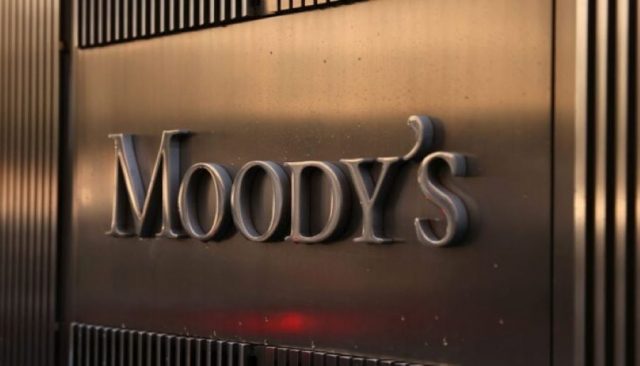TUE. 31 JANUARY, 2023-theGBJournal| On Friday, 27 January, Moody’s Investors Service (Moody’s) downgraded Nigeria’s sovereign credit rating further to ‘Caa1’ from ‘B3’ and changed the outlook to ‘Stable’.
Obligations rated ‘Caa1’ are judged to be of poor standing and are subject to very high credit risk. Accordingly, the rating reflects a downgrade to speculative or non-investment grade.
It comes just three months after the rating agency downgraded the country’s credit rating to ‘B3’ on 21 October 2022 primarily due to the significant deterioration in the country’s fiscal and external position, exerting increasing pressure on the sovereign credit profile despite a substantial increase in international crude oil prices in 2022.
Overall, the ‘Caa1’ rating is the lowest Nigeria has attained since 2006 (when rating agencies commenced coverage of Nigeria) and places the country under the same rating category as Gabon, Iraq, Pakistan, and Tunisia.
The year 2023 began with some buying interests in Nigerian sovereign bonds as investors looked elsewhere in the SSA curve due to Ghana’s default on its interest payments.
While we expect investors to be cautious of Nigerian Eurobonds, pending the outcome of the February general election, we think the recent rating downgrade will add a further layer of pressure on prices in the near term, more so that this is the first time since Nigeria has been downgraded to Caa1.
Downgrading the country’s credit rating further into a speculative grade implies that investing in Nigeria’s sovereign bonds is considered riskier, and the probability of default has increased compared to when the rating was at ‘B3’.
Accordingly, another likely implication of the downgrade is that Nigeria will find it difficult to access the foreign currency debt market in the short-to-medium term as investors price in the risk of default into the cost of debt amid the lingering increase in global interest rates.
Based on the preceding, the government’s options for funding annual budgets will be limited, with most of the funding need to be channelled to the domestic debt market, as we have seen in the 2023 budget.
Barring the continued utilisation of the CBN’s Ways & Means advances, we expect domestic fixed-income yields to rise significantly to drive participation by local market players.
Finally, the negative sentiments from the rating downgrade are also expected to further worsen the country’s already low foreign direct investments, implying a further decline in foreign capital inflows.
Some academic studies on Africa found that there is a statistically significant relationship between FDI and sovereign credit rating. Thus, other things being equal, global investors prefer investing in countries with good credit ratings as they perceive it as a good measure of risk allocation.
Besides, a rating downgrade increases the cost of debt, limiting the government’s ability to embark on efficient capital-forming initiatives.
Accordingly, we believe foreign investors will be on the lookout for the February general elections and policy direction afterwards.
The Medium-Term Fiscal Path Depends on Election Outcome
Although we believe Nigeria is unlikely to default in the near term, we think continued expenditure expansion with little revenue growth will steepen the path towards a debt default.
Consequently, the 2023 general election represents the most significant event that could provide further insights into Nigeria’s likely fiscal path over the short-to-medium term. A free and fair election will initially be a breather for the country.
It should improve sentiments on the domestic economy, given that the three leading candidates are seen to be market-friendly based on their respective manifestos. However, we acknowledge that actual outcomes usually differ from manifestos based on events of the last eight years.
Accordingly, we expect the initial post-free and fair election positive sentiment to be maintained if the winner of the Presidential election shows signs and immediate actions of being serious with embarking on aggressive fiscal consolidation to bring the country’s debt to a stable path.
Otherwise, we would expect the initial positive sentiments after the elections to be short-lived, increasing the likelihood of possible medium-term rating downgrade and subsequent debt default on aggressive debt accumulation and limited funding sources.-With Cordros Research
Twitter-@theGBJournal|Facebook-The Government and Business Journal|email:gbj@govbusinessjournal.ng|govandbusinessj@gmail.com










